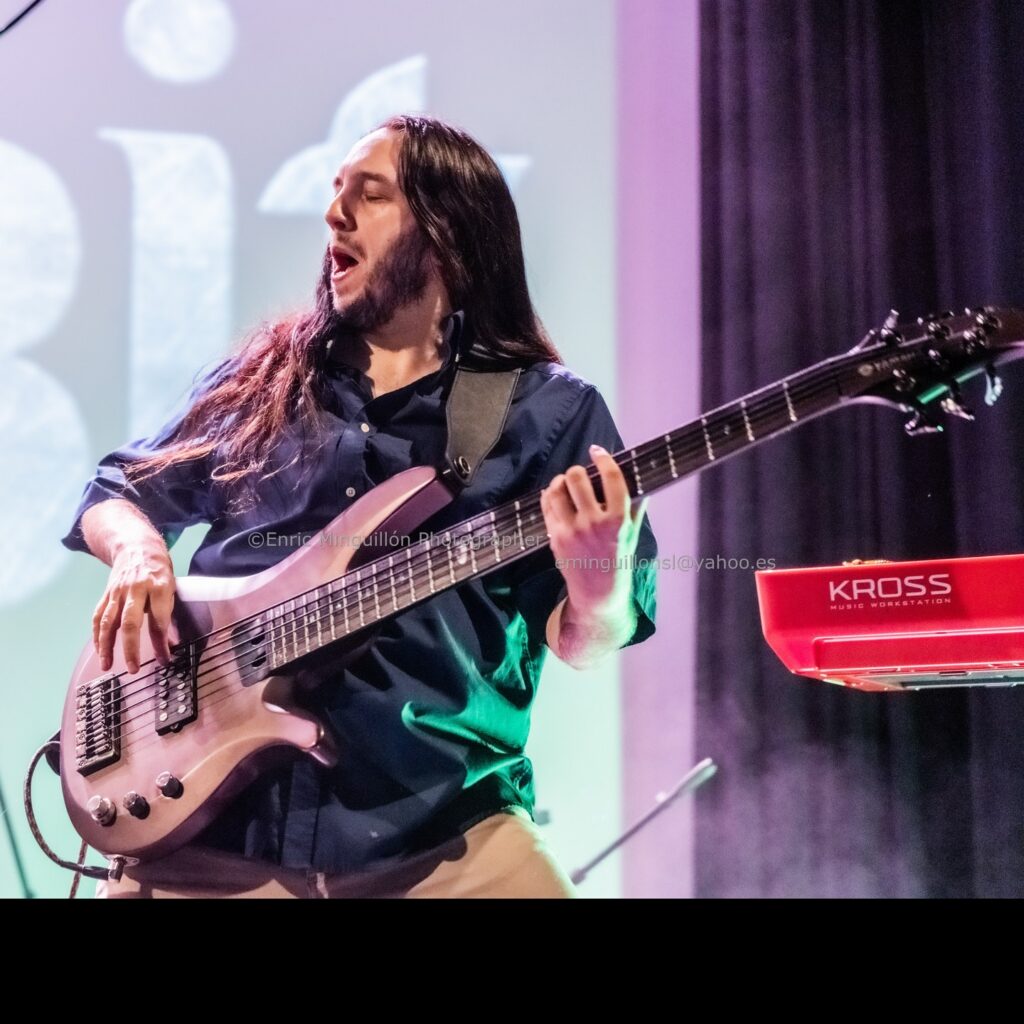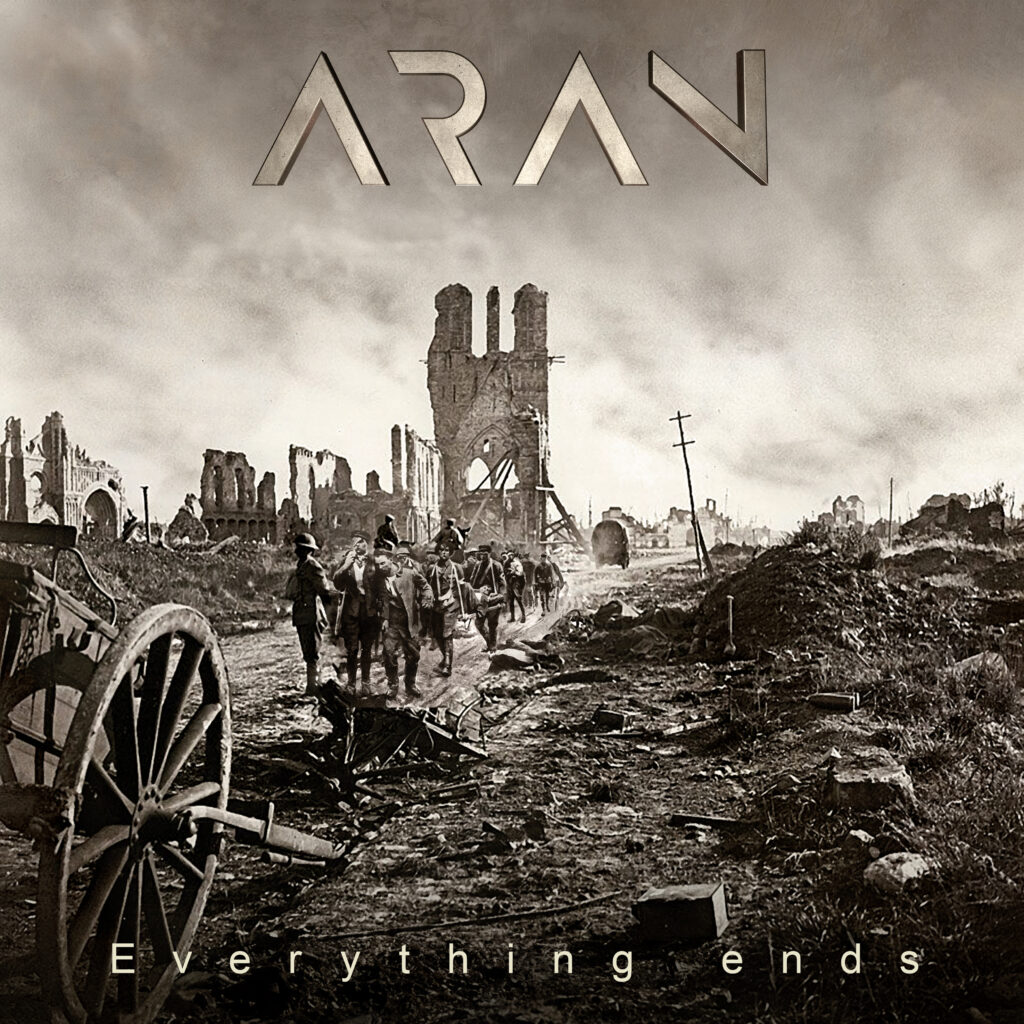Following the recent launch of a new single “Everything Ends”—also featured on our Progotronics 47 compilation—international progressive metal group Aran Prog Project announce the launch of their new, upcoming studio album titled WWI. The band’s founder, bassist and composer Massimiliano Gentilini spoke for Prog Sphere following the compilation inclusion.
“Everything Ends” is a powerful addition to Progotronics 47. Can you share the story behind this track and how it fits into the concept of your upcoming album WWI?
As the title suggests, it is a reflection on the fact that everything is finite; nothing is infinite. In the specific context of this topic within the album WWI, it speaks about the end of the First World War and how this influenced the lives (or deaths) of the people who experienced those events.
Your music blends progressive metal with influences from jazz, funk, and electronic music. How do you approach incorporating such diverse elements while maintaining a cohesive sound?
To be honest, I don’t consciously plan the blending of styles before composing. Rather, as a musician who has spent many years working in bands of different genres and studying at various schools with different approaches, the mix comes naturally to me. What I mean is, progressive metal is what’s in my soul, but in my heart, all the styles I’ve explored throughout my life coexist. When it comes to composing, they all flow automatically within a single framework.
The Aran Prog Project began as a remote collaboration and has since evolved into a full band. What were the challenges and rewards of transitioning from a project to a live-performing group?
I was lucky enough to meet people during my college years who shared my passion, and little by little, the band almost formed itself. In fact, almost each of the current permanent members of the band had already collaborated on the first album. Putting together a lineup for live performances was the next inevitable step.
EVO – A Progressive Journey explored the history of Earth and human evolution. What inspired the shift in focus to World War I for your next album?
The common thread is the idea of narrating the history of the Earth and Humanity, an idea that, I won’t hide, is inspired by bands like Iron Maiden. For me, the epic approach has always been that extra element that makes a great band truly legendary.
With WWI being a concept album, how do you plan to narrate the historical events through your music? Are there specific themes or stories that inspired particular tracks?
There will be songs inspired by specific events, such as the Battle of Tannenberg, the Schlieffen Plan, or life in the trenches in France, and others, like “Everything Ends,” that address the subject from a more general perspective, focusing on the emotions experienced during particular historical moments and perhaps from a more philosophical point of view as well.
Your cover of Vola’s “Straight Lines” was a bold choice. What drew you to reinterpret this track, and how does it connect to your own musical journey?
“Straight Lines” was a cover we used to play together with Silvia, our singer, during the years we were studying together. We decided to include it in our live performances, which led us to record it as a single as well. Perhaps it was out of our passion for the great band that is VOLA, or maybe also to challenge ourselves by recording something more modern in the realm of progressive metal compared to the more classic approach of our first album.
Working with 20 session musicians on Evo was an impressive feat. How did these collaborations shape the sound of the album, and will any of these musicians contribute to WWI?
Good question. The truth is that our first album was a deliberate challenge; the idea was to blend as many different personalities as possible into eccentric tracks and aim for originality by leveraging the unique character of each musician who participated. The next album will definitely be different because, although there will surely be guests—plenty of them—this time the core of the album will be recorded by the band’s official lineup, with the goal of creating a more stable and cohesive sound overall.
Progressive music often emphasizes storytelling. How do you balance intricate instrumentation with the narrative elements in your compositions?
We don’t. [laughs]
Making your live debut at Totum Revolutum festival must have been an exciting milestone. How did the audience respond to your set, and how does performing live influence your creative process?
Debuting the project live at an event like the Totum Revolutum Fest has undoubtedly been the realization of a dream—the first of many, we hope. We performed “Straight Lines” and “Everything Ends” at that concert months before their official release, and it was a very interesting experience, serving as a kind of testing ground. Hearing more than one person congratulate us on “the new tracks” felt like confirmation that we’re heading in the right direction with our fanbase.

The evolution of Aran from a studio project to a Barcelona-based band is fascinating. How has this shift impacted your songwriting and the group dynamic?
Getting to know the band members before writing the songs has made the compositional process much more intentional and focused on highlighting each member’s strengths. This is a stark contrast to what we used to do, which was the exact opposite: writing a track and then finding the right person to play it. I’m quite confident that this newfound maturity in our songwriting will be clearly reflected in the new album.
WWI is a heavy historical theme to tackle. What kind of research or preparation went into crafting an album dedicated to this period?
The idea began while watching a documentary series called Apocalypsis. The episodes about World War I fascinated me from the very first moment. I realized that, thanks to movies and books, I already knew quite a bit about World War II, but I was largely unaware of many intriguing aspects of the Great War: the brutality of the conflict, the astounding living conditions in the trenches, the suffering of the soldiers, and the physical and mental trauma endured by those who returned.
I wanted to start telling the story of a war that is often overshadowed by World War II and more recent conflicts. The inspiration to dedicate our second album to this subject grew stronger thanks to books like Storm of Steel and All Quiet on the Western Front. The release of the amazing remake of the latter’s film adaptation, which you can find on Netflix, became the ultimate motivation to pursue this theme. Highly recommended.
As an artist blending progressive styles, how do you stay inspired and push boundaries within the genre?
Listening to other genres. [laughs] This is something Rafa (our keyboardist) and I have discussed many times. In an interview, Diego Tejeida, the former keyboardist of Haken—a band we’re huge fans of and that I actually discovered thanks to Rafa—shared how his originality in finding sounds came from listening to other styles, like EDM. It’s a concept I believe resonates with the entire band. We’re all versatile musicians with experience in a wide range of fields. I’ve always thought that the worlds of metal should connect more with jazz, much like rock did in the ’70s, an era that gave us so many epic bands. In particular, the Italian band Banco del Mutuo Soccorso has been a strong source of inspiration for me in this regard.
Looking ahead, what can fans expect from Aran Prog Project in 2025 and beyond? Are there plans for a full-length release, tours, or other collaborations?
Well, as I mentioned, a second conceptual album is on the way, and “Everything Ends” will be part of it. In 2025, we’ll definitely focus on finishing the composition and arrangements for the album, start working on the next single, and, with a bit of luck, release some live material we’ve been able to record over the past few months. We’re committed to bringing more prog to everyone who follows us—that’s a promise!
For more about Aran Prog Project visit their website. Follow the band on Facebook and Instagram.


